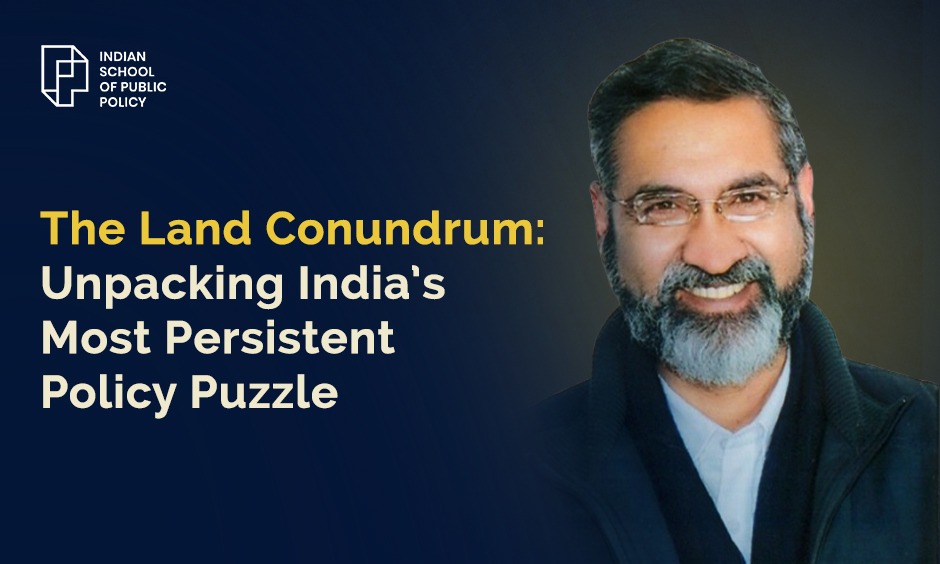Table of Contents
The Land Conundrum: Unpacking India’s Most Persistent Policy Puzzle

ISPP was fortunate to have Mr Deepak Sanan, an eminent IAS officer and leading expert on Land Policy and Governance on its campus on August 8, 2025. He led an insightful session with our scholars on the issue of “Land Questions in India.” Mr Sanan provided an incisive understanding on why land remains one of India’s most complex policy problems, based on his decades of administrative experience and research.
Economic Impact of Land Market Distortions
He started with the findings of a McKinsey Report of 2001 that highlights the fact that distortions in land markets alone costs India over 1.3% of GDP annually. This is due to weak land records, legal ambiguities, and fractured administrative capabilities. Mr Sanan talked on how access to land affects growth, equity and ease of doing business. India ranked 154th in global ranking related to property registration in the World Bank Group led Doing Business report, 2020.
Historical Roots of Land Issues in India
Colonial Period
Land records were created primarily for taxation purposes and not often for habitation or other non-cultivable purposes.
Post-Independence Policies
Land policies were aimed towards redistribution and equity purposes. But policies were poorly executed, for instance, “land to the tiller policy”, a reform aimed at transferring ownership of agricultural land to the people who till it, rather than those absentee landlords who owned it. These resulted in on-going disputes and numerous claims of unclear ownership.
Urban Context
Although land use planning was completed with mapping but not with titles of land ownership, which left most inhabited areas without acceptable titles to record.
Challenges with Land Ownership and Titles
Mr Sanan concluded that in India, presumptive title (you own until a claim is made) allows many claimants to the same land because of the present law related to succession, reliance on old surveys, and unclear land records. These hamper any solution to land use processes that can be implemented.
Picture Credit: Flickr.com



